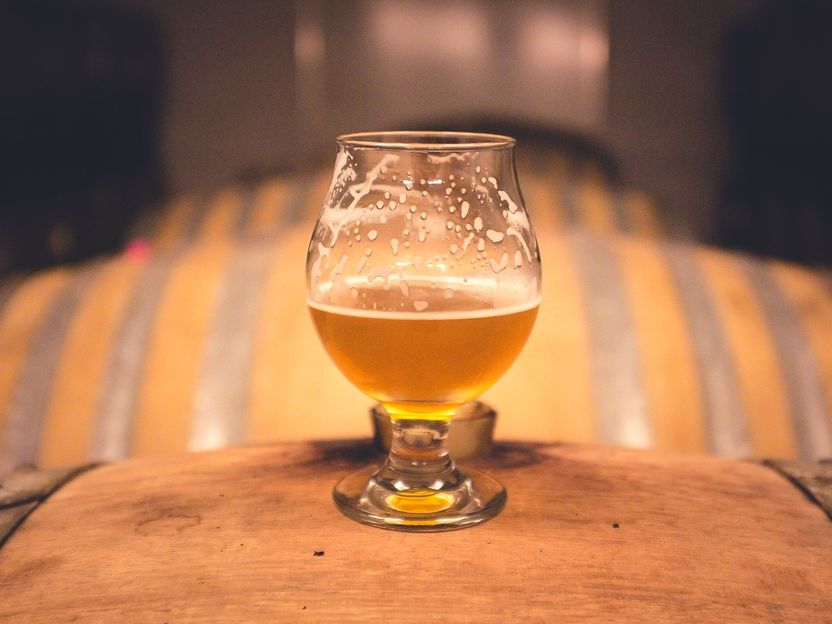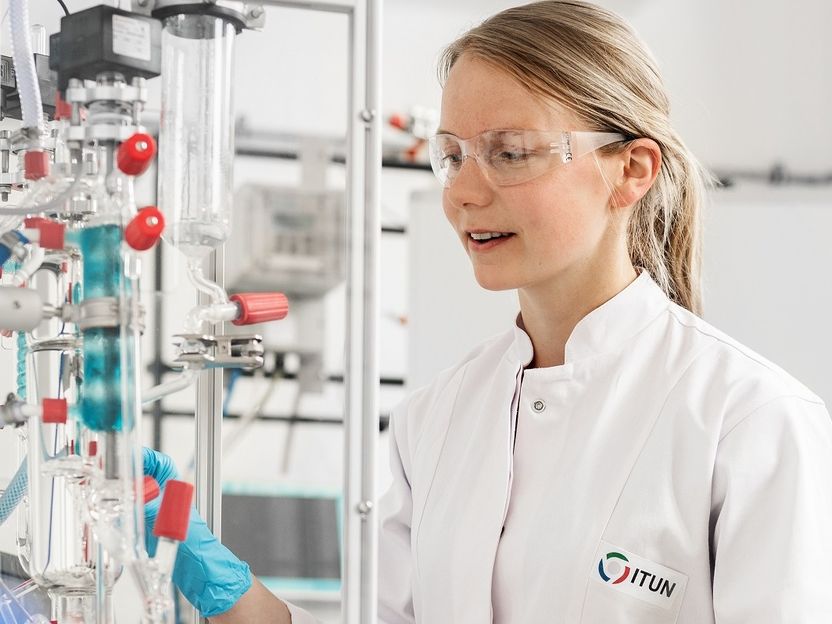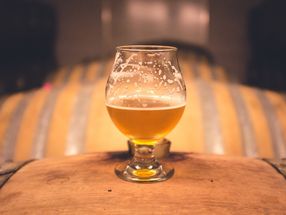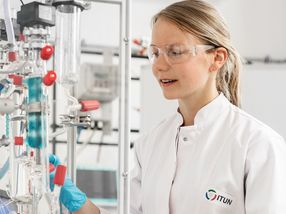Food supplements made from brewing residues?
New process offers potential for breweries and food industry
Advertisement
In an ongoing research project, scientists from the TU Bergakademie Freiberg are investigating how proteins, prebiotics, lipids and antioxidants can be filtered and extracted from spent grains press water.

StockSnap/ Pixabay

Extraction of valuable substances from a liquid.
TU Bergakademie Freiberg / C.I. Mokry


If it is possible to extract the nutrients in pure form, completely new utilisation paths for spent grains, the largest by-product in terms of volume in the brewing process, will result.
The residues of hops and malt in beer production, the so-called spent grains, consist of 80 percent water. However, the liquid components have hardly been used so far. According to the "Handbook of brewing", most of the spent grains from breweries today end up as animal feed in agriculture. The water that runs off during the pressing of the brewer's spent grains contains numerous nutrients, such as proteins and various sugars, as well as health-promoting substances, such as polyphenols and antioxidants. A team led by Dr. Roland Haseneder and Dr. Volker Herdegen at the Institute for Thermal Process Engineering, Environmental and Natural Materials Process Engineering at the TU Bergakademie Freiberg is now researching how the ingredients can be extracted from the spent grains and reused as food supplements.
Membrane filters nutrients from spent grains press water - complete extraction with CO2
"First, we pass the spent grains press water under slight pressure through different membrane types made of plastic or ceramic with different pore sizes and thus separate the components according to their mass," explains Dr. Roland Haseneder. The team tested the different membranes extensively in the laboratory and found that the desired nutrients cannot yet be obtained in pure form by filtration. "In most cases, the filtered-out molecules, for example polyphenols, adsorb on the proteins; this means that they adhere to their surface," the process engineer explains.
That is why Dr. Roland Haseneder and his team are now developing a method to refine the filtered-out nutrient complexes in a further step. CO2 extraction, which is used, for example, in the production of decaffeinated coffee, has proven to be particularly promising. "We can treat the constituents in the spent grains press water obtained by membrane filtration with liquid CO2 so that the molecular groups can be separated from each other," says Dr. Roland Haseneder. By combining filtration and CO2 extraction, the researchers hypothesize that the proteins, prebiotics and antioxidants could in future be obtained in pure form from the spent grains press water. In future, up to 15 grams of the "white powder" with the desired nutrients could be delivered to the food industry for further use in the beer production process per litre of press water.
New process offers potential for breweries and food industry
The brewing process produces an average of 20 kilograms of spent grains per hectolitre of beer. Extrapolated to the beer production in Germany, this results in a mass of 2 million tons of spent grains and about 1 million tons of spent grains press water per year. If the new recycling process developed by the Freiberg researchers were to find its way into beer production, this would have even more advantages: By removing moisture, the spent grains can be preserved longer. At the same time, the newly developed process allows the valuable substances contained in the spent grains to be extracted from the collected spent grains press water with less effort and at lower cost than from the solid components.
Background: Research on spent grains press water at the TU Freiberg
The research project "Optimisation of the fractionation of spent grains press water constituents by using hybrid separation processes" is funded by the Saxon State Ministry of Science, Culture and Tourism via the Saxon Reconstruction Bank with 261,000 euros for a period of 2.5 years. The researchers are building on the findings of the previous project on the use of membrane separation technology and are further optimising the developed process.
Note: This article has been translated using a computer system without human intervention. LUMITOS offers these automatic translations to present a wider range of current news. Since this article has been translated with automatic translation, it is possible that it contains errors in vocabulary, syntax or grammar. The original article in German can be found here.
























































